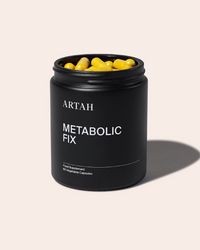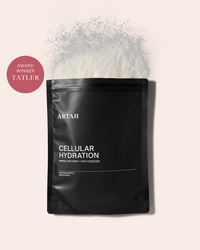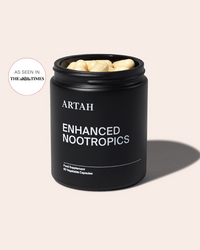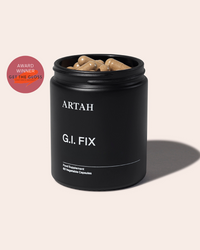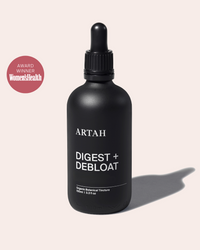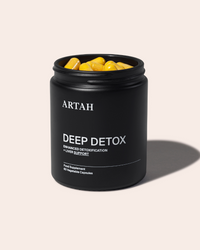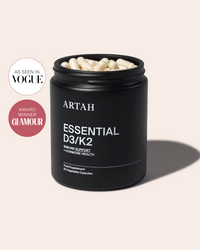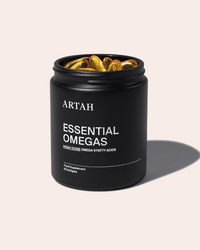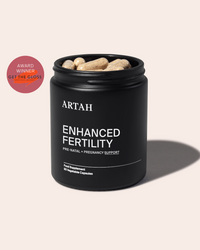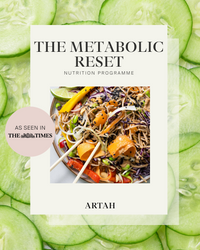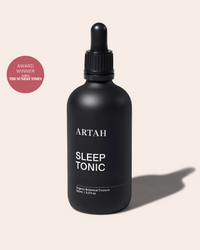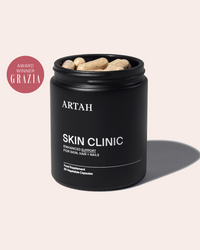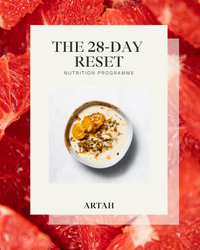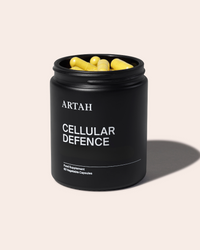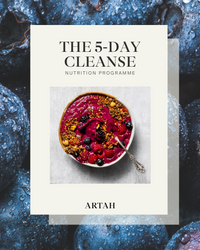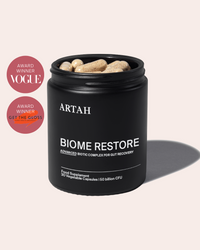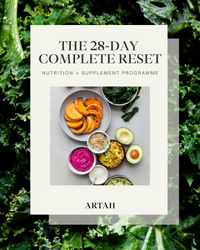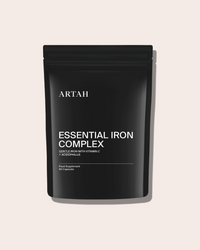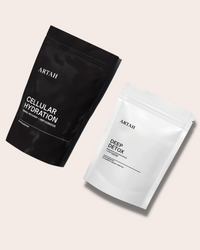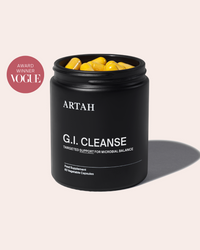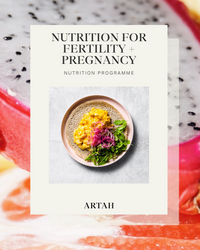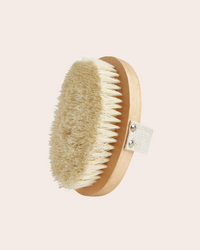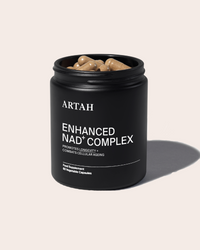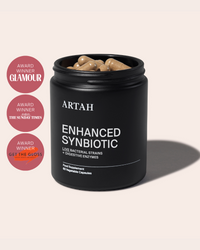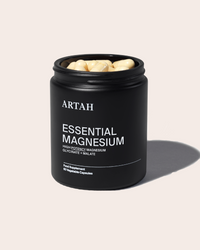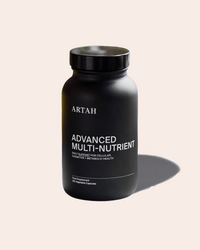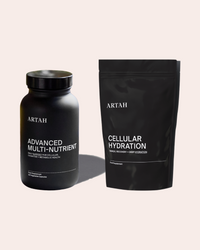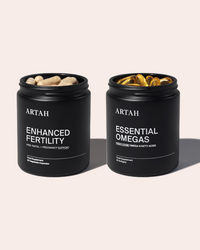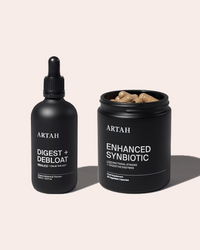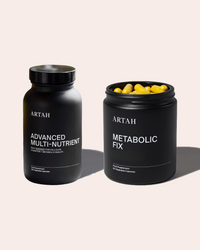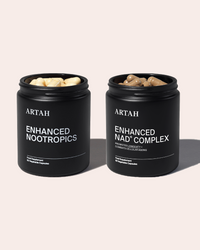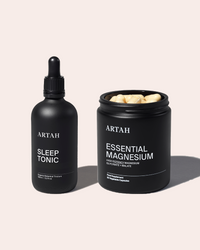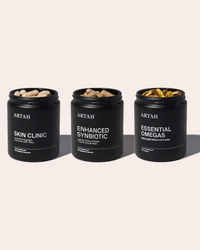This Is the Most Underrated Nutrient for Hormone Health
Choline is one of the secret heroes of women’s health.
A water-soluble, vitamin-like compound that’s closely related to the B Vitamin group, it plays a major role in cell structure, metabolic health, nervous system function and cell signalling. It’s a critical component in all our cell membranes, and a precursor to acetylcholine, one of the main neurotransmitters involved in voluntary muscle contraction, nervous system function, memory, thinking and learning. And it’s also a core nutrient for Methylation, a process that regulates the activity of our cardiovascular, neurological, reproductive and detoxification systems. So what does this have to do with women’s health? Everything.
Ovulation
Each month, several biological processes are involved in creating the right conditions for healthy ovulation to take place. Before ovulation can take place, a number of processes need to come together. At a most basic level, the immature egg – or oocyte – needs to develop into a mature egg – or ovum. Choline is critical to this process; Choline supplementation has been shown to increase the expression of Luteinizing Hormone Receptors in the cell membranes, which then interact with Luteinizing Hormone in the follicular phase of our menstrual cycle to induce ovulation. It’s also essential to cellular metabolism within the ovaries; it improves the activity of Cytochrome P450 – the major enzymes involved in energy production. Because of its importance in cell signaling, Choline supplementation is important to consider for supporting PCOS and anovulation.
Stress
Women’s hormone health and fertility is sensitive to excess stress; whilst this may sound unfair, it’s really a protective mechanism. It’s the body’s way of deprioritising a potential pregnancy if the environment is too stressful (and as we know, our stress response can’t tell the difference between a genuine physical danger and extreme emotional stress). Serotonin and dopamine are probably the most talked about neurotransmitters, but acetylcholine is incredibly important. It’s involved in endless aspects of nervous system signaling, including heartbeat, blood pressure, intestinal peristalsis (the contractions that keep our bowel moving), muscle contraction, memory and mood. When it comes to Choline’s involvement, the name says it all; it’s required for adequate levels of acetylcholine to be produced. Signs of low acetyl choline include poor memory and recall, brain fog, muscle weakness, low muscle tone, dry eyes, constipation, depressed mood, chronic inflammation, muscle aches, fatigue and mood disorders.
Fertility + Pregnancy Loss
In addition to its role in ovulation, an obvious link to fertility, Choline is critical for various other processes that are important to the success of the prenatal period and first trimester, including things like new membrane biosynthesis, tissue expansion, the development of the placenta and nutrient transport to your growing foetus. Growing evidence is also pointing towards the importance of healthy methylation pathways for pregnancy outcomes. When methylation is impaired, not only does it affect gene expression – which is crucial in embryo development – but it can also lead to elevated levels of Homocysteine, a marker of poor metabolic health. Historically, elevated Homocysteine has been linked to cardiovascular risk and metabolic disorders, but studies have shown that it is also a risk factor in miscarriage; upwards of 25% of women with unexplained pregnancy loss have elevated levels of Homocysteine.
Pregnancy
During pregnancy, our Choline requirements increase and it’s one of the most critical nutrients for your baby’s neural development and cognitive health. It also acts as a helper nutrient to the essential fatty acid DHA by facilitating its transport across the placental membrane, and as already mentioned, is a core part of the methylation pathways alongside Folate, Vitamin B12 and Vitamin B6. Maternal choline intake is a keen topic of interest right now when it comes to early childhood learning outcomes. Studies have shown that prenatal Choline intake can have a significant effect on child cognition; an intake of double the recommended minimal intake during pregnancy is associated with better markers of attention, working memory and problem solving in children.
Where to get it
Despite it’s importance, there’s no official RDA for Choline, although there are rumors that this may be coming soon, and it’s often excluded from pre-natal and pregnancy supplements, even though 90% of adult women don’t get enough from diet alone. This is of particular importance for individuals following a plant-based diet, especially if it excludes eggs, as animal products are the richest source of Choline. Food sources include whole eggs, beef, fish, pork, poultry, prawns, soybeans, and to a lesser extent, brown varieties of mushrooms, lima beans, cruciferous vegetables and almonds. It’s worth noting that organ meat, like liver, is one of the best sources of choline, however liver should be limited in pregnancy due to its high Vitamin A content and potentially high levels of accumulated toxins (although this is less likely in high-quality, grass-fed sources).
Enhanced Fertility has a market leading dose of Choline and can be used both for pregnancy specific stages (whether trying to conceive or already pregnancy) or to optimise hormones and support metabolic health whether trying to conceive or not.
For more information on nutrition and nutrients that are important for reproductive health, see our Nutrition for Fertility + Pregnancy eBook, which is also complimentary when you purchase Enhanced Fertility.






